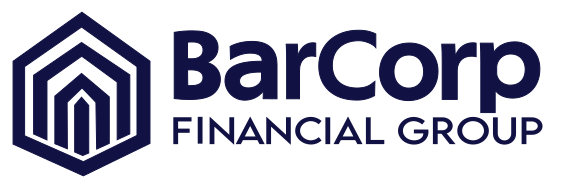
Constructions Loans in Florida.
Construction loans in Florida are financial products specifically designed to provide funding for the construction of a new residential or commercial property. These loans differ from traditional mortgages, as they are intended to cover the costs associated with the construction process rather than the purchase of an existing property. Here’s how construction loans typically work:
- Phases of Construction:
- Construction loans are usually disbursed in phases or “draws” to coincide with different stages of the construction process. Common phases include land acquisition, foundation, framing, and completion.
- Application and Approval:
- Borrowers need to apply for a construction loan through a lender. The lender will assess the borrower’s creditworthiness, financial stability, and the feasibility of the construction project. Approval is based on these factors.
- Loan Amount:
- The loan amount is determined based on the estimated cost of construction. Lenders may consider the borrower’s financial standing, the project plans, and the appraised value of the completed property.
- Interest Rates:
- Construction loans often have variable interest rates that may be higher than those for traditional mortgages. These rates can fluctuate during the construction period.
- Short-Term Nature:
- Construction loans are typically short-term loans, with a duration that matches the estimated construction timeline. The borrower may need to secure a long-term mortgage or other financing once construction is complete.
- Construction Timeline:
- Borrowers are expected to adhere to the construction timeline outlined in the loan agreement. Delays in construction may affect the disbursement of funds and can have financial implications.
- Loan Disbursement in Draws:
- As the construction progresses, funds are disbursed in installments or draws. The borrower, contractor, and sometimes an inspector will need to verify the completion of specific phases before funds are released.
- Interest-Only Payments:
- During the construction phase, borrowers may be required to make interest-only payments on the amount disbursed. Full principal and interest payments usually begin once construction is complete.
- Conversion to a Mortgage:
- Upon completion of the construction, the borrower may need to convert the construction loan into a permanent mortgage or secure additional financing to repay the construction loan.
- Builder Requirements:
- Lenders may have specific requirements for builders, including their qualifications and experience. The builder’s track record and reputation can impact the lender’s decision.
- Equity Requirement:
- Borrowers may be required to contribute a certain percentage of the project cost as equity. This ensures that the borrower has a financial stake in the project’s success.
It’s essential for individuals considering construction loans in Florida to work closely with experienced lenders, builders, and possibly financial advisors to navigate the complexities of the construction loan process successfully.
What are the key eligibility criteria for individuals applying for construction loans in Florida?.
The key eligibility criteria for individuals applying for construction loans in Florida may vary among lenders, but some common requirements include:
- Creditworthiness:
- Lenders typically assess the credit history and credit score of the borrower. A higher credit score may improve the chances of loan approval.
- Financial Stability:
- Lenders evaluate the borrower’s financial stability, including income, employment history, and existing debts. A stable financial background enhances the borrower’s credibility.
- Construction Plans and Budget:
- Borrowers need to provide detailed construction plans and a comprehensive budget. Lenders want to ensure that the proposed project is feasible and that the loan amount aligns with the estimated construction costs.
- Down Payment and Equity:
- Borrowers are often required to make a significant down payment, which serves as a form of equity in the project. The down payment amount may vary but is typically higher than that required for a traditional mortgage.
- Builder Qualifications:
- Lenders may have specific requirements regarding the qualifications and experience of the builder or contractor involved in the construction project.
- Loan-to-Value (LTV) Ratio:
- Lenders calculate the loan-to-value ratio, which compares the loan amount to the appraised value of the property. A lower LTV ratio may be more favorable for loan approval.
- Ability to Repay:
- Borrowers must demonstrate their ability to repay the loan. This involves providing proof of income and employment stability.
- Construction Timeline:
- Lenders may want assurance that the construction will be completed within a reasonable timeframe. Borrowers should provide a realistic construction timeline.
- Legal Compliance:
- Compliance with local zoning laws, building codes, and other legal requirements is crucial. Lenders want to ensure that the construction project adheres to all necessary regulations.
- Reserve Funds:
- Some lenders may require borrowers to have reserve funds or a contingency plan to cover unexpected costs that may arise during construction.
- Interest Reserves:
- In some cases, borrowers may need to demonstrate the ability to cover interest payments during the construction phase.
- Permanent Financing Plan:
- Lenders may inquire about the borrower’s plan for permanent financing or refinancing once the construction is complete. This ensures that the borrower has a strategy for long-term repayment.
It’s important for individuals seeking construction loans in Florida to discuss specific eligibility criteria with potential lenders, as these requirements can vary. Working with experienced professionals in the construction and finance industry can also provide valuable guidance through the application process.
How does the approval process for construction loans in Florida differ from traditional mortgage applications?.
The approval process for construction loans in Florida differs from traditional mortgage applications in several key ways due to the unique nature of construction financing. Here are some notable differences:
- Project Evaluation:
- Construction Loans: Lenders assess the feasibility and viability of the construction project, reviewing detailed construction plans, budgets, and timelines. The focus is on the specifics of the building process.
- Traditional Mortgages: The emphasis is primarily on the current value of the property being purchased and the borrower’s ability to repay the loan based on their creditworthiness and financial stability.
- Down Payment and Equity:
- Construction Loans: Typically require a higher down payment and a significant equity contribution from the borrower. This is because the lender is taking on a higher level of risk during the construction phase.
- Traditional Mortgages: Generally have lower down payment requirements, and borrowers may have the option to put down as little as 3-5%, depending on the mortgage type.
- Loan Disbursement Structure:
- Construction Loans: Funds are disbursed in stages or “draws” based on the completion of specific construction milestones. This ensures that the borrower has the necessary funds to complete each phase of the project.
- Traditional Mortgages: The entire loan amount is typically disbursed upfront for the purchase of the property.
- Variable Interest Rates:
- Construction Loans: Often come with variable interest rates that may fluctuate during the construction period. Once construction is complete, the loan may be refinanced into a traditional mortgage with a fixed rate.
- Traditional Mortgages: Can have fixed or adjustable interest rates, but fixed-rate mortgages are more common. Borrowers benefit from a consistent interest rate throughout the loan term.
- Credit and Financial Assessment:
- Construction Loans: While creditworthiness is still important, lenders also focus on the borrower’s ability to manage a construction project successfully. This involves evaluating the borrower’s construction plans, builder qualifications, and financial stability.
- Traditional Mortgages: The primary focus is on the borrower’s credit history, income, employment stability, and debt-to-income ratio.
- Builder and Contractor Considerations:
- Construction Loans: Lenders may have specific requirements regarding the qualifications and experience of the builder or contractor involved in the construction project.
- Traditional Mortgages: The choice of builder or contractor is generally less scrutinized in the traditional mortgage approval process.
- Conversion to Permanent Mortgage:
- Construction Loans: Borrowers typically need to convert the construction loan into a permanent mortgage or secure additional financing upon project completion.
- Traditional Mortgages: Do not involve a conversion process; the mortgage remains the same throughout its term.
Understanding these differences is crucial for borrowers navigating the construction loan approval process in Florida. Seeking guidance from lenders experienced in construction financing and working closely with professionals in the construction and real estate industry can help ensure a smoother approval process.

Can you provide insights into the typical documentation required during the application process for construction loans in Florida?.
Certainly, the documentation required during the application process for construction loans in Florida is comprehensive and is intended to provide lenders with a clear understanding of the borrower’s financial situation, the construction project, and the associated risks. Here is a list of typical documentation that borrowers may need to provide:
- Personal Identification:
- A valid government-issued photo ID, such as a driver’s license or passport, to establish the borrower’s identity.
- Proof of Income:
- Recent pay stubs or income statements to verify the borrower’s employment and income. For self-employed individuals, tax returns and business financial statements may be required.
- Credit History:
- Authorization for the lender to obtain the borrower’s credit report. A good credit history is essential for loan approval.
- Construction Plans and Specifications:
- Detailed plans and specifications for the construction project, including architectural drawings, floor plans, and a comprehensive list of materials and finishes.
- Builder/Contractor Information:
- Details about the builder or contractor, including qualifications, experience, and relevant licenses. Some lenders may have specific requirements for builders.
- Construction Budget:
- A detailed construction budget outlining the estimated costs for each phase of the project. This should include costs for materials, labor, permits, and other associated expenses.
- Land Purchase Information:
- Documentation related to the purchase of the land, including the sales contract and proof of ownership.
- Property Appraisal:
- An appraisal report for the completed project to estimate its market value. This helps determine the loan-to-value (LTV) ratio.
- Down Payment Verification:
- Proof of the borrower’s down payment and equity contribution. This may include bank statements or other financial documents.
- Reserve Funds:
- Some lenders may require evidence of reserve funds to cover unexpected expenses or potential cost overruns during construction.
- Insurance Information:
- Proof of insurance coverage for the construction project. This may include builder’s risk insurance, which provides coverage during construction.
- Legal Documents:
- Legal documentation related to the construction project, such as construction contracts, permits, and zoning approvals.
- Permanent Financing Plan:
- A plan outlining how the borrower intends to secure permanent financing or repay the construction loan once the project is complete.
- Personal Tax Returns:
- Personal tax returns for the past few years to provide a comprehensive overview of the borrower’s financial history.
- Builder’s Risk Insurance:
- Evidence of builder’s risk insurance to cover potential risks during the construction phase.
It’s important to note that the specific documentation requirements can vary among lenders, so borrowers should consult with their chosen lender to get a comprehensive list tailored to their situation. Additionally, working with experienced professionals, such as builders, real estate agents, and financial advisors, can help streamline the documentation process for construction loans in Florida.

In the context of construction loans in Florida, what factors do lenders consider when determining the loan amount and interest rates for borrowers?.
When determining the loan amount and interest rates for construction loans in Florida, lenders consider various factors to assess the risk associated with the construction project and the borrower’s ability to repay. Here are key factors that lenders typically take into account:
- Construction Budget:
- Lenders review the detailed construction budget provided by the borrower. This budget outlines the estimated costs for materials, labor, permits, and other expenses associated with the construction project.
- Land Value:
- The appraised value of the land on which the construction will take place is considered. This value, combined with the projected value of the completed property, influences the loan-to-value (LTV) ratio.
- Loan-to-Value (LTV) Ratio:
- The LTV ratio is calculated by dividing the loan amount by the appraised value of the completed property. A lower LTV ratio is generally more favorable, as it represents a smaller loan amount in relation to the property’s value.
- Down Payment and Equity:
- The borrower’s down payment and equity contribution are crucial. Lenders may require a significant down payment, typically higher than what is required for a traditional mortgage, to ensure the borrower has a financial stake in the project.
- Borrower’s Creditworthiness:
- Credit history and credit score play a significant role in the loan approval process. Lenders assess the borrower’s ability to manage debt responsibly.
- Builder/Contractor Information:
- The qualifications and experience of the builder or contractor involved in the construction project are considered. Lenders may have specific requirements for builders to mitigate construction-related risks.
- Loan Disbursement Structure:
- Lenders evaluate the proposed disbursement structure, ensuring that funds are released in stages based on construction milestones. This helps manage risk and ensures that the borrower has the necessary funds for each phase of the project.
- Interest Rates:
- The interest rates for construction loans are often variable and may be higher than those for traditional mortgages. Lenders consider the potential risks associated with the construction phase and adjust interest rates accordingly.
- Loan Duration:
- Construction loans are typically short-term loans, aligning with the estimated construction timeline. Lenders consider the duration of the loan and may offer terms that match the project’s completion timeframe.
- Borrower’s Financial Stability:
- Lenders assess the borrower’s overall financial stability, including income, employment history, and existing debts. A stable financial background is important for loan approval.
- Legal Compliance:
- Lenders ensure that the construction project complies with local zoning laws, building codes, and other legal requirements. This helps mitigate legal risks associated with the construction.
- Permanent Financing Plan:
- Lenders may inquire about the borrower’s plan for securing permanent financing or repaying the construction loan once the project is complete. This ensures that the borrower has a strategy for the long-term financial aspect of the property.
Understanding these factors is essential for borrowers seeking construction loans in Florida. Working closely with experienced lenders and professionals in the construction and real estate industry can provide valuable guidance and help optimize the loan terms.
Could you explain the specific phases or milestones that influence the disbursement of funds during the construction process of loans in Florida?.
Certainly, the disbursement of funds during the construction process of loans in Florida is typically structured in phases, with funds released at specific milestones to ensure that the project is progressing as planned. Here are the common phases or milestones that influence the disbursement of funds:
- Land Acquisition:
- If the borrower is purchasing the land for construction, the initial disbursement may cover the acquisition costs, including the purchase price and associated fees.
- Foundation Stage:
- The first major construction milestone is often the completion of the foundation. Once the foundation work is verified and approved, the lender releases funds to cover the associated costs.
- Framing and Superstructure:
- Funds are disbursed when the framing or superstructure of the building is completed. This includes the construction of walls, floors, and the roof.
- Enclosed Building:
- When the building is enclosed with windows, doors, and roofing, it reaches a stage where it can be secured from the elements. At this point, additional funds may be released.
- Mechanical Systems Installation:
- Funds are provided for the installation of essential mechanical systems such as plumbing, electrical wiring, HVAC (heating, ventilation, and air conditioning), and other utilities.
- Interior Finishes:
- The disbursement at this stage covers the completion of interior finishes, including flooring, walls, ceilings, and other elements that contribute to the aesthetics of the property.
- Exterior Finishes:
- Funds are released for the completion of exterior finishes, which may include siding, paint, landscaping, and other elements that enhance the property’s curb appeal.
- Final Inspection and Approval:
- Before the final disbursement, the lender conducts a thorough inspection to ensure that the construction is in compliance with the approved plans and meets all necessary building codes and regulations.
- Certificate of Occupancy (CO):
- The issuance of a Certificate of Occupancy marks the completion of the construction and indicates that the property is suitable for occupancy. Final funds are disbursed at this stage.
It’s important to note that the specific milestones and disbursement schedule can vary among lenders and may be outlined in the construction loan agreement. Additionally, the borrower, contractor, and often an inspector hired by the lender collaborate to verify the completion of each phase before funds are released.
Effective communication between the borrower, the builder or contractor, and the lender is crucial to ensure a smooth disbursement process and the successful completion of the construction project. Borrowers should be aware of the disbursement schedule outlined in their loan agreement and provide necessary documentation to support each phase of construction.
Mortgage Brokers in Florida. Barcorp Financial Group.
Before choosing a mortgage broker, it’s advisable to research and consider factors such as their reputation, customer reviews, the variety of loan products they offer, and their ability to provide personalized and professional service. Additionally, verify that the mortgage broker is licensed and operates in compliance with state regulations. You may also seek recommendations from friends, family, or real estate professionals who have experience with mortgage brokers in Florida.
Mortgage brokers in Florida are individuals or firms that act as intermediaries between borrowers (homebuyers or property owners) and mortgage lenders. Their primary role is to assist individuals in securing mortgage loans by connecting them with appropriate lenders. Here’s an overview of what mortgage brokers in Florida do:
- Loan Shopping:
- Mortgage brokers work with various lenders, including banks, credit unions, and private lenders. They help borrowers shop around for the best mortgage terms, interest rates, and loan products that suit their financial needs.
- Access to Multiple Lenders:
- Unlike individual lenders who offer their own set of loan products, mortgage brokers have access to a network of lenders. This allows them to offer borrowers a broader range of options.
- Loan Application Assistance:
- Mortgage brokers guide borrowers through the mortgage application process. They assist in completing the necessary paperwork and ensure that all required documentation is submitted accurately and promptly.
- Credit Counseling:
- Mortgage brokers may provide advice on improving credit scores and financial profiles to help borrowers qualify for more favorable loan terms.
- Negotiation with Lenders:
- Mortgage brokers negotiate with lenders on behalf of borrowers to secure the best possible terms. This includes negotiating interest rates, loan terms, and closing costs.
- Rate Locking:
- Mortgage brokers can help borrowers lock in favorable interest rates, protecting them from market fluctuations during the loan approval process.
- Coordination with Real Estate Professionals:
- Mortgage brokers often collaborate with real estate agents, homebuilders, and other professionals involved in the real estate transaction. This ensures a smooth process from loan approval to property purchase.
- Cost Comparisons:
- Mortgage brokers provide borrowers with detailed cost comparisons, including different loan options, interest rates, and fees associated with each loan product.
- Pre-Approval Process:
- Mortgage brokers assist borrowers in obtaining pre-approval, which strengthens their position when making offers on homes. Pre-approval demonstrates to sellers that the buyer is a serious and qualified candidate.
- Compliance and Regulation:
- Mortgage brokers in Florida must comply with state and federal regulations governing the mortgage industry. They ensure that all transactions adhere to legal and ethical standards.
- Disclosure of Terms:
- Mortgage brokers are responsible for fully disclosing the terms and conditions of the loans they present to borrowers. This includes all fees, costs, and obligations associated with the mortgage.
It’s important for borrowers to carefully evaluate mortgage brokers, considering factors such as their reputation, experience, and the range of lenders they work with. While mortgage brokers provide valuable assistance, borrowers should also conduct their own research to ensure they are comfortable with the chosen loan product and terms.

